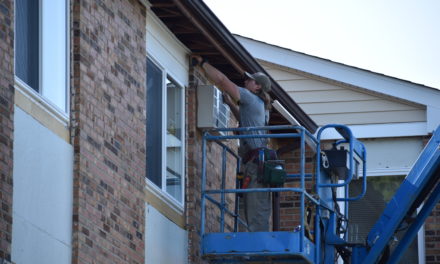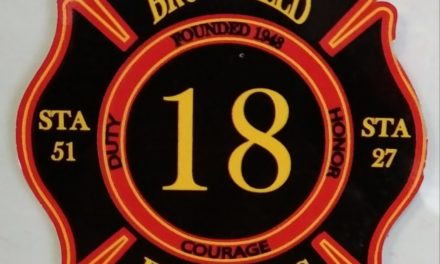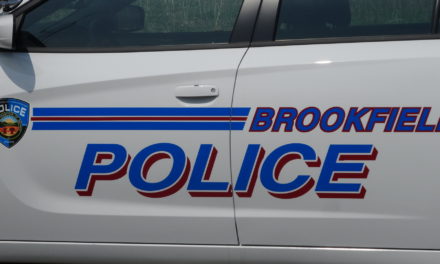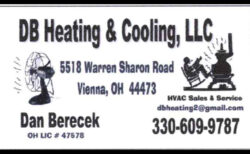Calling 911 for a medical emergency, a fire or a car crash can be stressful, so Jim Richmond asks that people think about those scenarios when there are no emergencies going on.
A 911 telecommunicator – the official name for an emergency dispatcher – Richmond said the faster and more accurately you can relay the basic information to the telecommunicator, the faster emergency help can be on the road and headed to the right place.
It might go without saying that the address where the emergency is occurring is a crucial bit of information, but there are several variables that could be at play that make rendering the correct address difficult, said Richmond, a Brookfield volunteer fire captain.
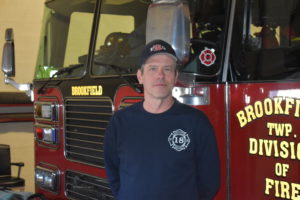
Jim Richmond
If you call with a cellphone, “we have no idea where you are,” he said, whereas landline addresses are kept in a database provided by the telephone companies. If you are outside a building, look for landmarks that might help the dispatcher identify where you are, he said. If you are inside a home that is not yours and you do not know the address, look for a piece of mail that lists the address.
Richmond also noted that cellphones are routed off towers. If you are calling from Masury, the nearest tower might be in Mercer County, and the call would go to Mercer County 911. As soon as the Mercer County dispatcher recognizes the emergency is in Ohio, he or she will route it to Trumbull County 911. In those instances, be patient, Richmond said.
“It’s gonna sound irritating and upsetting because you’ve got a stressful event going on and you’re explaining yourself twice,” he said. “We do get some agitated people, because they don’t understand how cellphones work.”
When relaying an address, don’t give the mailing address but the actual township, village or city where the emergency is, he said. Part of Brookfield Township has Hubbard, Vienna and Fowler mailing addresses, while the Masury post office serves a part of Hubbard Township.
But, if your address has a northeast or southeast attached to it, such as addresses on Route 7, give that to the dispatcher, he said. It’s another way the telecommunicator can accurately locate where you are, Richmond said.
The other two basic pieces of information dispatchers need if you are calling 911 are your name and your telephone number, in case the dispatcher or an agency such as the police department has to call you back, he said.
The 911 dispatcher will send help if the caller refuses to give a name, but that name could be helpful in locating the emergency, Richmond said. Dispatchers have access to a database that lists names and addresses.
“We can run your name through the computer and get a possible address,” said Richmond, who has been with 911 for 25 years.
 No matter what kind of phone service you use, make sure the phone provider has an accurate address, Richmond said.
No matter what kind of phone service you use, make sure the phone provider has an accurate address, Richmond said.
“Now, we’re running into a problem where people are giving the internet phone companies and the cable phone companies their mailing addresses and not what actual community they’re in,” he said. “We go by what township or village or city you live in, not the mailing address.”
Richmond remembered a call from a woman in North Carolina who needed emergency medical assistance because her husband was having chest pains. The woman used to live in Bazetta and had not updated her location information with her phone provider after she moved, leaving Trumbull County dispatchers scrambling to find the right dispatch agency in North Carolina to which to reroute the call.
One other factor to consider in calling 911 is whether the incident is an emergency that is happening now, Richmond said. Reports of a “fire, medical, a crime occurring now, break-ins, you got a prowler in your yard, a serious car accident,” should go to 911.
“To report something that happened four, five days ago or a stolen bike,” call the 911 non-emergency line at 330-675-2730, said Richmond, who encourages people to program that number into their phones.
Using the non-emergency line keeps the emergency lines open.
“We only have so many 911 lines,” Richmond said. “If the 911s are overwhelmed, then someone’s getting a busy signal or waiting until a line opens up, and that could be an emergency.”
There also are times when it is best to call an agency directly and bypass 911 altogether, he said.
“If you need copies of reports, call your local police station directly,” Richmond said. “If you need to speak to the police chief or if you need to speak to a detective about a crime from a past time, just call the police station during business hours and they’ll point you in a direction.”


